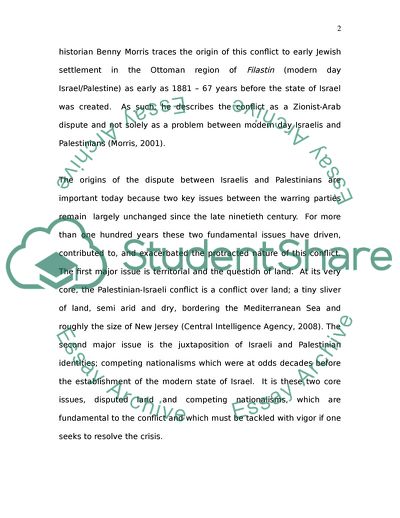Cite this document
(Why has Peace Been so Difficult to Achieve in Arab-Israel Conflict Case Study, n.d.)
Why has Peace Been so Difficult to Achieve in Arab-Israel Conflict Case Study. Retrieved from https://studentshare.org/politics/1719518-why-has-peace-been-so-difficult-to-acheive-in-arab-israel-conflict
Why has Peace Been so Difficult to Achieve in Arab-Israel Conflict Case Study. Retrieved from https://studentshare.org/politics/1719518-why-has-peace-been-so-difficult-to-acheive-in-arab-israel-conflict
(Why Has Peace Been so Difficult to Achieve in Arab-Israel Conflict Case Study)
Why Has Peace Been so Difficult to Achieve in Arab-Israel Conflict Case Study. https://studentshare.org/politics/1719518-why-has-peace-been-so-difficult-to-acheive-in-arab-israel-conflict.
Why Has Peace Been so Difficult to Achieve in Arab-Israel Conflict Case Study. https://studentshare.org/politics/1719518-why-has-peace-been-so-difficult-to-acheive-in-arab-israel-conflict.
“Why Has Peace Been so Difficult to Achieve in Arab-Israel Conflict Case Study”, n.d. https://studentshare.org/politics/1719518-why-has-peace-been-so-difficult-to-acheive-in-arab-israel-conflict.


